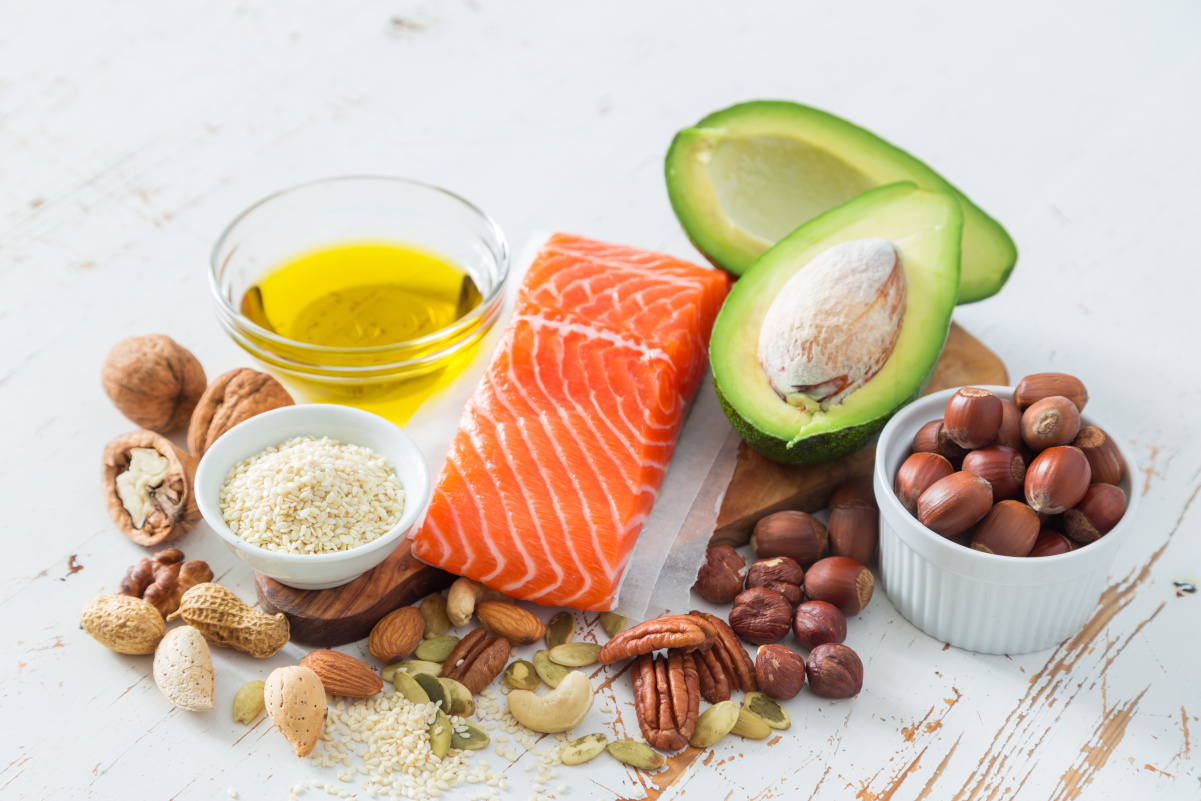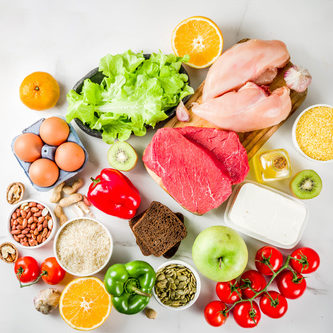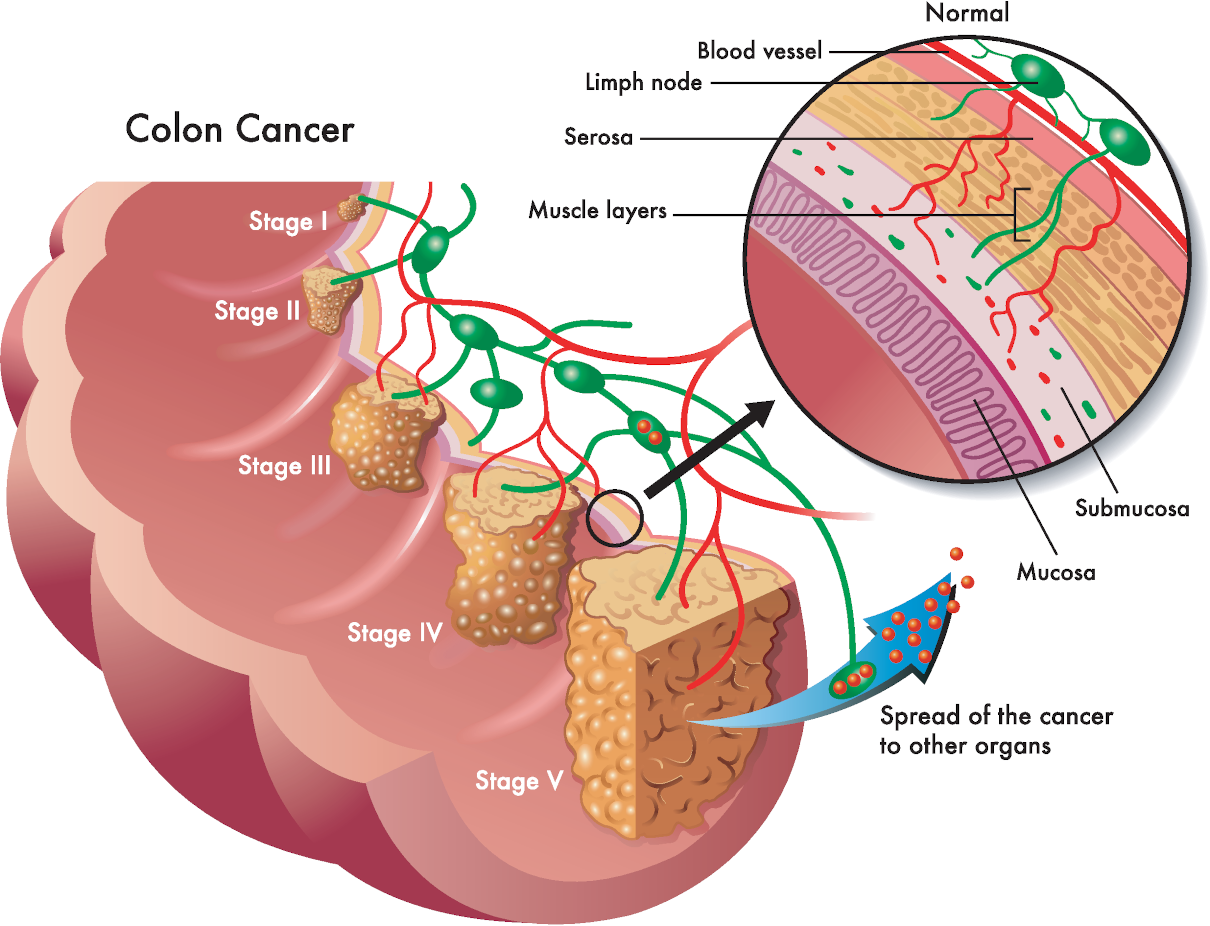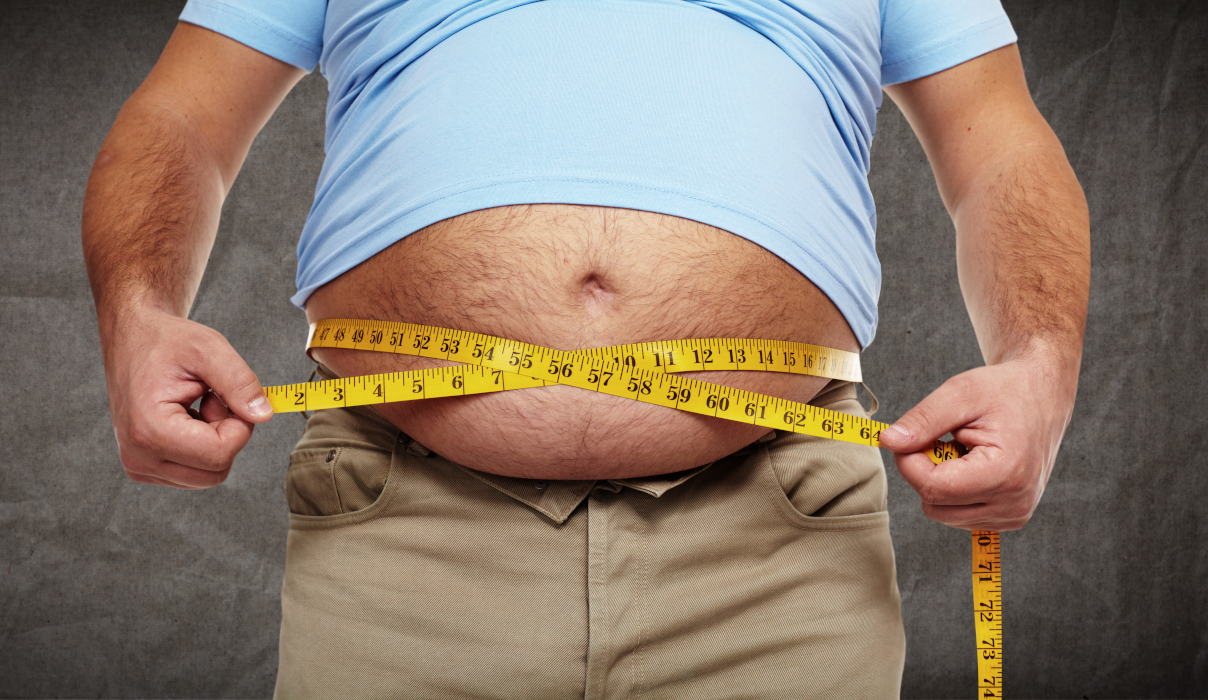
Worried about the amount of fat you eat? Many people have become obsessed with the fat content of food; they are eating almost completely fat-free diets. But for good health, we need fat as much as protein, carbohydrates, vitamins & minerals in our diet. It is the type of fat that’s important. Saturated fats – animal fats from meat and dairy are generally solid at room temperature (e.g. butter, lard). Saturated fats are unnecessary and potentially harmful. They are vital to the body, yet we cannot make them ourselves. However, they need to be a regular part of our daily diet. What makes saturated fats “bad” and EFAS “good” relates to their function in the body.
Cell membranes and hormones
Cell Membranes – EFAS are crucial for the integrity of membranes, fluid balance and functioning of cells.
Hormones. We need EFAS for the production of hormones and prostaglandins. That, in turn, regulates many vital body functions, including inflammation, nerve transmission, heart function, and hormonal cycles. Essential fatty acids, found in evening primrose oil, flaxseed oil or borage oil, can be taken daily to promote the healthy functioning of the uterus and help regulate hormone production. We should take these essential fatty acids with vitamin E, which helps stabilise hormones.

Anti parasitic colonic hydrotherapy with bicarbonate of soda
Parkland Natural Health offers colon hydrotherapy with an anti-parasitic implant and bicarbonate of soda as an anti-candida agent. It includes comprehensive consultation.
Brain development – brain tissue contains a very high concentration of fatty acids, and is exceptionally high in DHA from fish. Adequate levels are crucial for rapid brain and neural development in early life.
Unsaturated EFAS tend to go rancid quickly. If you are deficient in EFAS, you will likely start to notice subtle warning signs, such as dry skin, lifeless hair, cracked nails, fatigue, dry eyes, and high blood pressure. Over time, if the body does not meet its needs, the problems become much more severe, including depression, heart disease and cancer.
Boosting your EFAS level through diet or supplementation can help improve skin conditions. It can also increase mental clarity, reduce the risk of heart disease and help inflammatory conditions such as arthritis.
So, where do we find EFA fats?
Some of the best foods rich in linoleic acid are sunflower seeds, sesame and pumpkin seeds (and cold-pressed oils from these sources), as well as almonds, pecans, and walnuts. Plants such as borage and evening primrose contain a direct source of GLA – a fatty acid one step down from linoleic acid.

One colonic irrigation session including consultation
Colon irrigation and comprehensive consultation with a professional colon hydrotherapist registered with RICTAT and ARCH at the Parkland Clinic in Holborn. We use a closed system only—London’s best colonic hydrotherapy deal.
Some of the best sources of Omega-3 fatty acids are oily fish, such as salmon, mackerel, tuna, and herring. These are exceptionally high in both EPA and DHA, omega-3 fatty acids crucial for brain and heart health.
How the body handles EFAS
If healthy, you can make prostaglandins from linoleic acid and alpha-linolenic acid. Still, if you have a history of allergies in your family, you may be atopic and have a problem with the conversion. In this case, supplementation of GLA may be appropriate.
Some essential vitamins and minerals act as cofactors for fatty acid conversion; a deficiency of these nutrients can inhibit the formation of prostaglandins. Ensure your diet is high in Vitamin B6, magnesium, biotin, calcium and zinc. Avoid trans-fats, coffee and alcohol – all inhibiting essential fatty acid metabolism.
The balance of omega-3 and omega-6 fatty acids is critical to prostaglandin metabolism. Omega-3 fats help drive the Omega-6 pathway.
A diet that includes a regular serving of oily fish and a daily handful of seeds, such as sunflower, pumpkin, and sesame, mixed (or oils from these sources), should provide a balanced intake of both Omega-3 and Omega-6 EFAS.

Food intolerance test of 208 ingredients
This is our most comprehensive food and drink test. It analyses your client’s IgG antibody reactions to 208 food and drink ingredients. This test will highlight their food triggers and help you formulate an IgG-guided elimination diet together.











